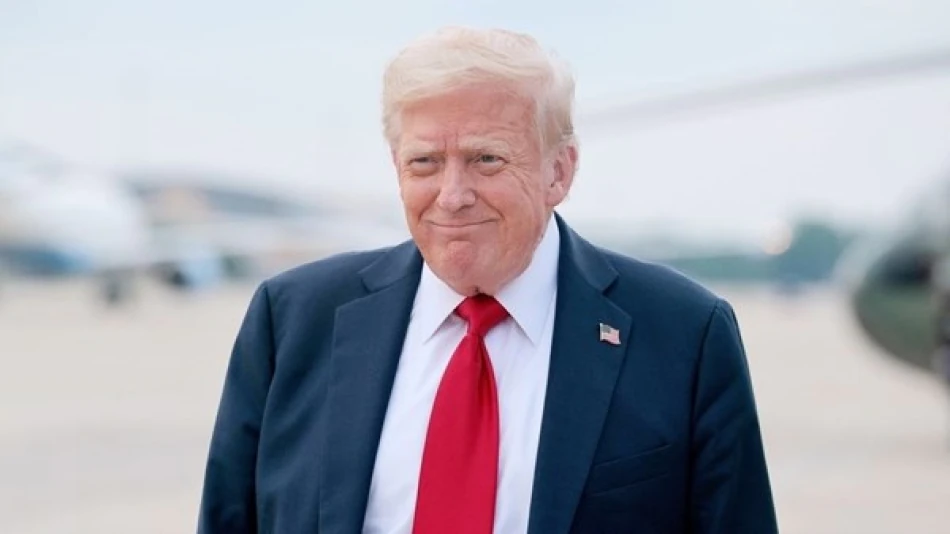
Trump Mulls Suing Federal Reserve Chair Amid Growing Tensions
Trump Escalates Fed Chair Attack, Threatens Legal Action Over Building Renovation Costs
President Donald Trump intensified his criticism of Federal Reserve Chair Jerome Powell on Tuesday, threatening potential legal action over Powell's oversight of the Fed's headquarters renovation project. The unprecedented threat comes as Trump continues pressuring the central bank for immediate interest rate cuts, highlighting a deepening conflict between the White House and America's independent monetary authority.
Legal Threats Over Construction Overruns
Writing on his Truth Social platform, Trump accused Powell of causing "incalculable damage" through his "constant delays" and suggested he might authorize a lawsuit related to Powell's supervision of the Washington renovation project. The president claimed the renovation cost $3.1 billion, though Powell has corrected this figure to $2.5 billion, explaining that Trump's higher number includes work on a separate building completed earlier.
Trump's threat to pursue legal action against a Fed chair represents an extraordinary escalation in executive pressure on the central bank. While presidents have historically criticized Fed policy, threatening litigation over administrative matters crosses into uncharted territory that could further strain the institution's independence.
Interest Rate Pressure Campaign Intensifies
The legal threat coincided with renewed demands for immediate rate cuts following Tuesday's inflation data showing consumer prices held steady at 2.7% in July. Trump called Powell's leadership style "too accommodating" while simultaneously demanding the Fed chair "cut interest rates immediately" — a contradictory position that underscores the political nature of his criticism.
Fed's Cautious Approach to Tariff Impact
Federal Reserve policymakers are carefully monitoring the economic effects of Trump's expanded tariff regime on the world's largest economy. The central bank's Board of Governors has yet to determine whether recent tariff increases will create one-time price adjustments or sustained inflationary pressure — a crucial distinction for future rate decisions.
This uncertainty explains the Fed's measured approach to rate cuts, despite Trump's public pressure campaign. The last reduction came in December, and policymakers appear reluctant to ease policy until tariff effects become clearer.
Historical Context and Market Implications
Trump's confrontational approach toward Powell echoes his first-term criticism of the Fed chair he appointed in 2018. However, the current dispute carries higher stakes given the complex economic environment shaped by trade policy, persistent inflation concerns, and global monetary policy divergence.
For markets, the escalating tension creates additional uncertainty around Fed independence. Bond traders and equity investors typically view central bank autonomy as crucial for credible monetary policy. Any perceived political interference could complicate the Fed's inflation-fighting credibility and potentially influence long-term interest rate expectations.
Powell's Position and Fed Independence
Powell's four-year term as Fed chair runs until 2026, providing some insulation from immediate political pressure. The Fed chair has consistently emphasized the central bank's commitment to data-driven policy decisions rather than political considerations. His correction of Trump's renovation cost figures demonstrates a willingness to push back against presidential criticism, even on seemingly minor administrative matters.
The brewing conflict will likely intensify as economic data continues flowing and the Fed approaches its next policy meeting. Trump's threat of legal action, while potentially lacking legal merit, signals his determination to pressure the central bank through unconventional means — a strategy that could reshape executive-Fed relations regardless of its ultimate success.
Most Viewed News

 Layla Al Mansoori
Layla Al Mansoori






